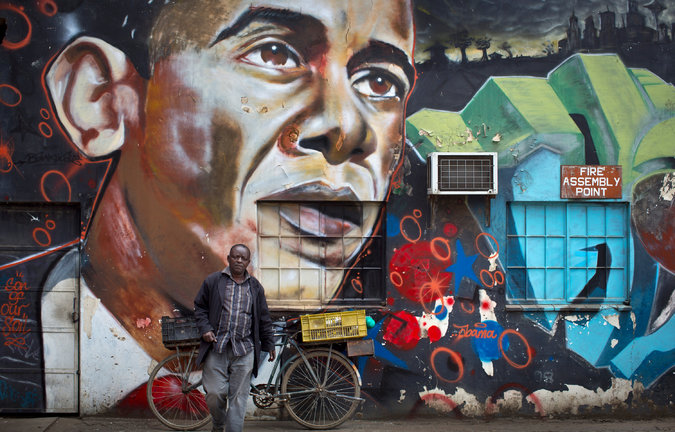Layers of meaning in Mr. Obama’s Kenya trip

There often comes a time in the lives of Americans when they feel drawn to explore their roots, a quest that might take them on a pilgrimage to the “old country,” whether County Limerick, or Guangzhou, or a West African country from which their ancestors were abducted as slaves.
Roots are an integral part of one’s identity, especially in a time of mass migrations. So it is no surprise that Barack Obama’s first visit to Kenya as president should be enormously poignant, complex and absorbing.
“This is no typical presidential visit — and this is no typical descendant of immigrants. The mix of narratives behind Mr. Obama’s trip is extraordinary.’
It is the ultimate American dream: the step-grandson of an illiterate African rising to the most powerful office on earth. There is Mr. Obama’s own story so movingly told in his first book, “Dreams From My Father,” about a youth raised by a white mother in Hawaii trying to build an identity out of his complex background, and the central role played in this search by the Kenyan father he meets only once.
Political message
Of course, Mr. Obama cannot travel to Kenya simply as a seeker of roots, the way he did before he moved into the White House. As president he is constrained by security and politics; he must take into account the political message of meeting Uhuru Kenyatta, the leader of Kenya who has been accused of instigating ethnic violence; he’s likely to face sniping from political hacks like Donald Trump, who during the president’s first term outrageously questioned whether Mr. Obama was born in the United States and was constitutionally eligible to be president.
There is no question that returning to the land of his paternal ancestors is personally important for Mr. Obama and is enormously important to Kenyans who have embraced Mr. Obama as a symbol of hope. But the voyage is also important for all Americans, as a recognition that roots, whether in some obscure foreign village or in the American Plains, are a part of America’s.
Step-grandmother
The Kenyan step-grandmother Mr. Obama calls Mama Sarah, and the other relatives he met on his previous trips, are as much part of his identity —and of his presidency — as his upbringing in Hawaii and Indonesia, his work in Chicago, or his studies of law.
It is impossible to imagine that Mr. Obama’s vision of America’s role in the world, or his efforts to improve the lives of Americans, are not shaped at least in part by his familiarity with the complexity of the world and of his own identity.
Mr. Obama’s journey to Africa may not produce all the benefits that he hoped to deliver, and the presidential cocoon will not allow him to relive the personal connections of his youth. But when the world’s most powerful leader touches the most humble of roots, the symbolism of the moment transcends the normal metrics of politics.
Source: The New York Times
